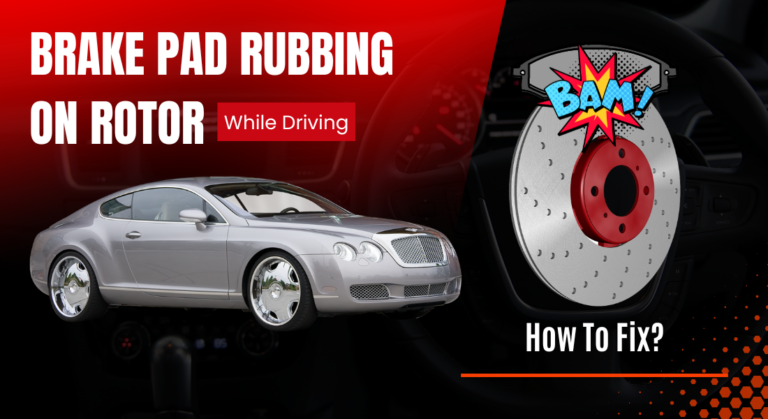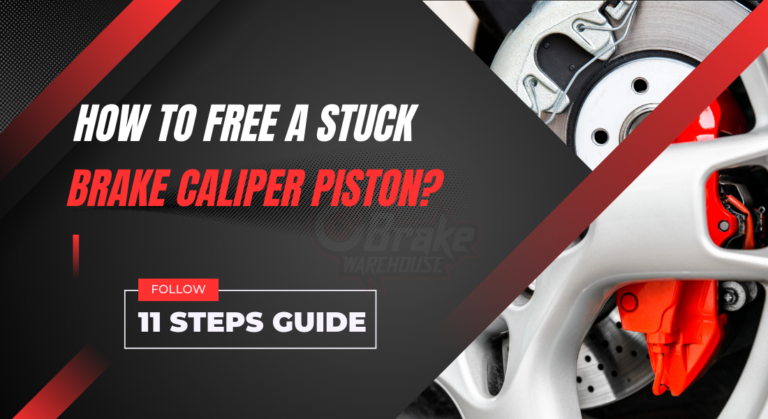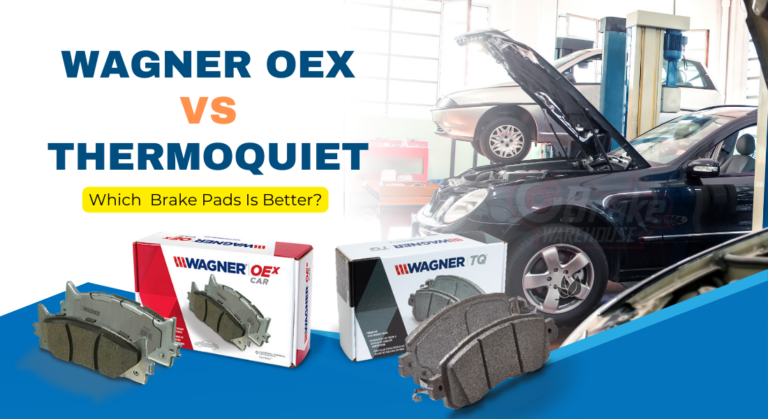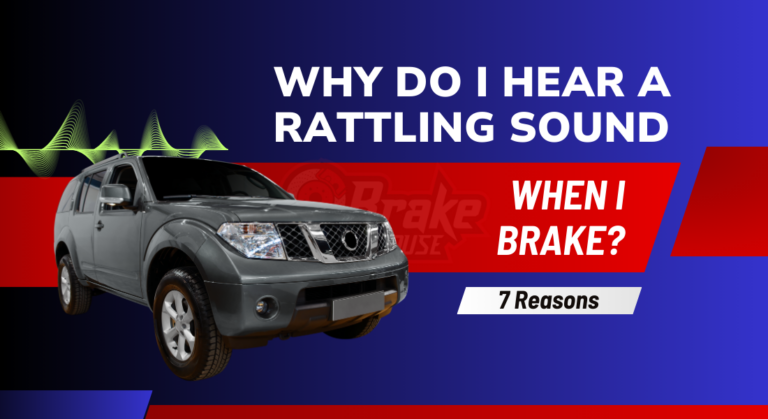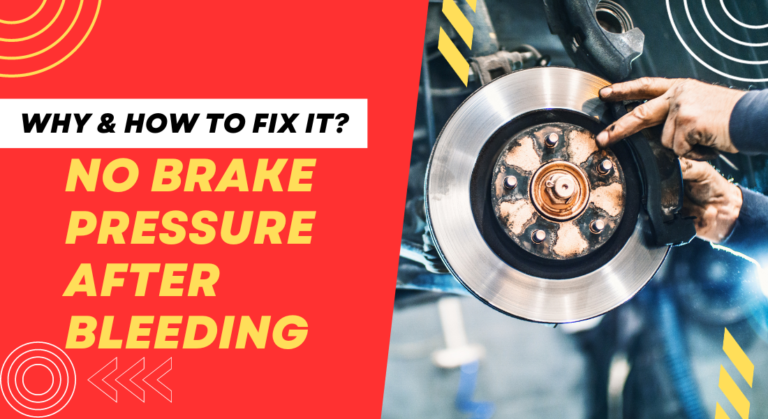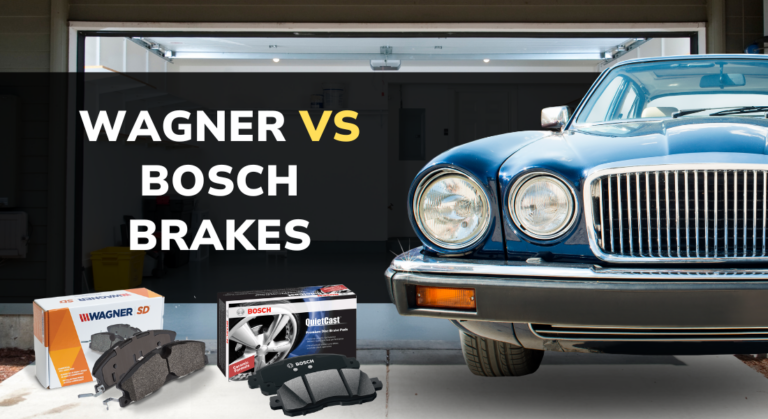Drove With Handbrake On for 5 Minutes – What Will Happen?
Nearly all drivers experience occasional lapses in memory when disengaging the emergency brake before commencing their journey. If you find yourself in this situation for a few minutes, you may wonder to know – drove with handbrake on for 5 minutes – is it ok?.
Driving with the handbrake engaged for 5 minutes is generally not a significant concern. In fact, it is unlikely to cause severe damage. However, it may lead to extra wear on the brake components and reduced fuel efficiency. Avoiding this situation to preserve your vehicle’s longevity and performance is advisable.
Are there any other things you should be worried about? Let’s dive deep.
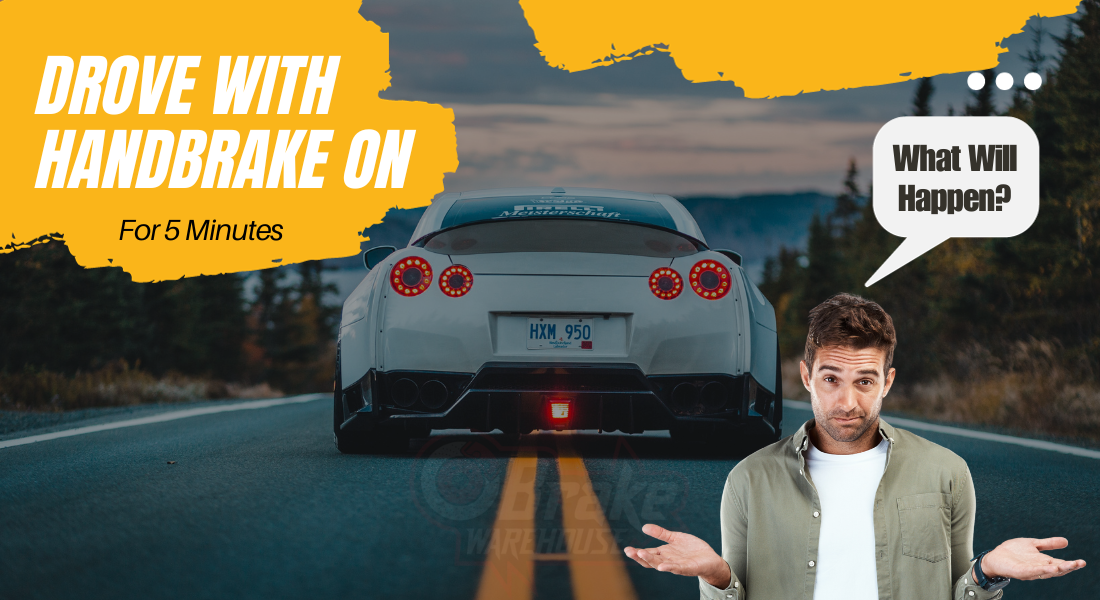
Drove with Handbrake on for 5 Minutes – What Will Happen?
Driving with the parking brake engaged can lead to various issues, each with its own consequences, detailed below.
Burning Smell
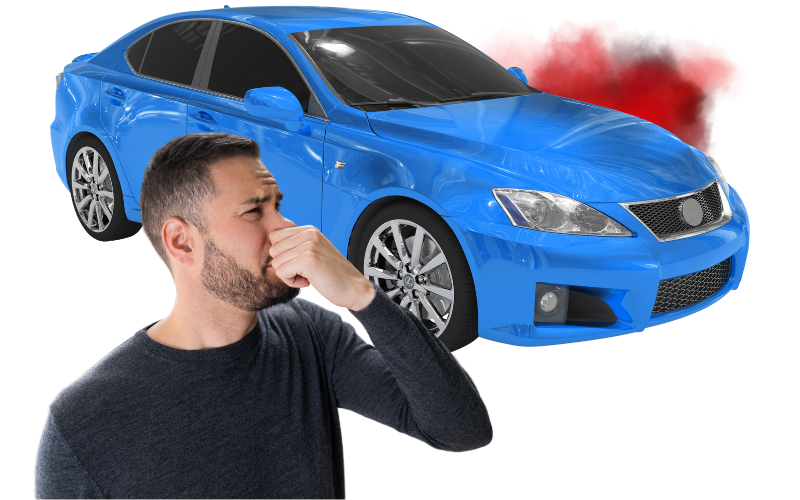
You may notice a distinct burning smell when you drive with the parking brake on. This odor results from reduced acceleration due to the engaged parking brake while driving. It also causes excessive friction between the brake pads and drums or rotors, leading to overheating.
However, while the burning smell is a common indicator of this mistake, it doesn’t fully explain the potential system damage.
Potential Fire

This represents the worst-case scenario and is an actual occurrence in some cases. The intense heat generated by the excessive friction from overheating brakes can ignite a fire.
A vehicle fire is a situation you want to avoid at all costs, and it becomes a real risk when using the parking brake while driving.
Brakes Glazing

One of the most typical and severe consequences of driving with the parking brake engaged is brake glazing. Excessive friction causes the brakes to overheat, resulting in the rotors/drums and pads developing a “glaze.”
This glaze makes the pavement much slicker than it should be, significantly reducing your car’s stopping power. While regular use may remove this glaze and restore normal stopping performance. Sometimes you may need to replace the brake pads and drums/rotors.
Read Also: Scraping Noise When Braking – Why & What You Should Do?
Misalignment of the E-Brake Cable

The precise adjustment controlling your parking brake is located where the brake wire connects to your brake lever. If the parking brake is applied too tightly, the brakes won’t fully disengage upon release. On the other hand, if it’s too loose, they won’t engage properly.
The adjustment may become loose and unreliable as the parking brake pads wear down from frequent use. In such cases, you must readjust your parking brake to ensure it provides the necessary stopping power.
Damage to Rotors and Pads

Prolonged driving with the parking brake fully engaged can result in the premature wear and tear of critical components. The intense friction and heat the braking system generates take their toll, especially at higher speeds.
This may lead to damage to wheel bearings and the deterioration of rear brakes. Expect to address issues with shock absorbers, calipers, axle seals, and various other components. Moreover, the engine is subjected to considerable strain during this ordeal.
Read Also: Brake Pad Rubbing On Rotor While Driving – How To Fix?
Overheated Brake Fluid

When driving at high speeds for an extended duration with the parking brake on, the heat generated by friction can permeate the brake fluid. It potentially elevates the brake fluid to the boiling point.
While brake fluid boiling is relatively rare, a more common consequence is the formation of a glaze on the brake pads, making them less grippy. Consequently, the braking system has to exert more effort to bring the vehicle to a halt.
However, not repeating the same mistake will eventually allow the glaze to dissipate over time, restoring normal functioning to the braking system.
Brake Failure

Leaving the parking brake engaged while driving can indeed cause brake failure. This happens because driving with the parking brake engaged generates excessive heat and friction within the braking system, leading to various issues.
Over time, this can damage brake components, such as rotors, pads, and even brake fluid. The result can be decreased braking performance or complete brake failure, which poses a significant safety hazard.
It is crucial to disengage the parking brake before driving to ensure the proper functioning of the braking system and maintain vehicle safety.
Can You Drive Your Handbrake On?

Driving with your handbrake or the parking brake is not advisable and can have potentially dangerous consequences. While it is designed for stationary use, leaving it on while driving can have several adverse effects.
Leaving the handbrake on generates excessive friction and heat within the braking system. This can lead to various issues, including premature wear and damage to essential brake components such as rotors, pads, and even the brake fluid.
Over time, this can significantly compromise braking performance, potentially causing the brakes to fail. This poses a severe safety risk to you, your passengers, and others on the road.
Additionally, driving with the handbrake engaged can result in a noticeable burning smell and decreased acceleration due to the extra resistance. It can also lead to wheel damage, reduced fuel efficiency, and increased stress on the engine and transmission.
Always disengage the handbrake before driving to ensure your safety and the longevity of your vehicle’s braking system. This simple yet critical step helps maintain proper brake function and prevents potential accidents caused by impaired braking performance.
Read Also: How Long Can You Drive Without Brake Pads? – Is It Safe
What To Do After Driving With Emergency Brake On?
If you’ve accidentally driven with the emergency brake (also known as the parking brake) engaged, taking prompt action is essential to ensure your safety and prevent potential damage to your vehicle:
- Pull Over Safely: As soon as you realize the emergency brake is engaged, safely pull over to the side of the road or into a parking lot.
- Turn Off the Engine: Immediately turn off the engine to prevent further overheating and potential damage to the braking system.
- Let It Cool Down: Allow the brakes to cool down. This may take some time, especially if they are very hot. You may notice a burning smell during this process.
- Disengage the Emergency Brake: Ensure the emergency brake is fully disengaged.
- Check for Damage: Inspect your brakes, wheels, and other components for signs of damage or excessive wear. Pay attention to any unusual noises, vibrations, or changes in braking performance.
- Drive Cautiously: Resume driving cautiously, paying close attention to your vehicle’s braking performance. If you notice any issues or unusual behavior, consider having your vehicle inspected by a professional mechanic.
- Regular Maintenance: Schedule a brake inspection as soon as possible to assess any potential damage and address it promptly.
FAQs
How long can I leave my parking brake on?
Leaving your parking brake on for an extended period is not recommended. It can lead to overheating, brake damage, and decreased braking performance. It’s best to disengage the parking brake immediately after parking your vehicle to prevent these issues and ensure safe operation.
Does the parking brake lock all wheels?
Yes, the parking brake, when engaged, typically locks or secures all the wheels of a vehicle. This prevents the vehicle from rolling or moving and is especially important when parked on inclines or slopes to ensure stability and safety.
Is the parking brake and the emergency brake the same?
Yes, parking brakes and emergency brakes are often used interchangeably. Both terms refer to a secondary brake system in vehicles used for parking or emergencies. However, this brake system’s specific design and operation can vary between different vehicles.
Final Words
Hopefully, you got the answer to the question: drive with handbrake on for 5 minutes – is it ok?
Driving with the emergency brake engaged might go unnoticed, which could signal a deteriorating emergency brake system that requires immediate inspection.
Small oversights can lead to significant repercussions. Thus, it’s wise to establish the habit of engaging the parking brake whenever you park. Always double-check to ensure the handbrake is disengaged when the vehicle is in motion.

Meet Zayan, the mechanical genius behind the highly acclaimed brakes problems and solutions website. With over a decade of hands-on experience in the automotive industry, Zayan has become a trusted authority in the realm of brake systems.
His passion for cars, coupled with his expertise in solving complex brake-related issues, has earned him a devoted following of car enthusiasts, mechanics, and everyday drivers seeking reliable guidance.

